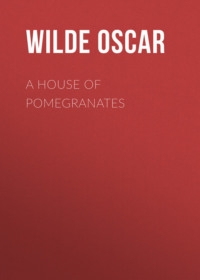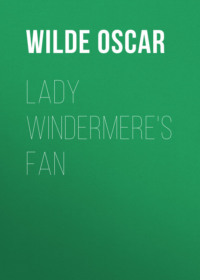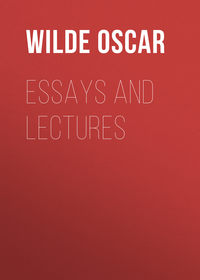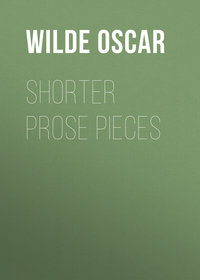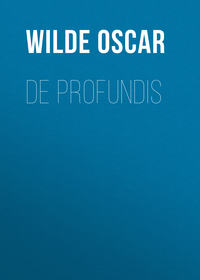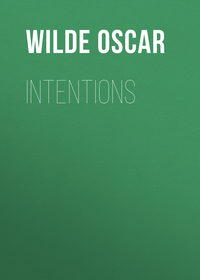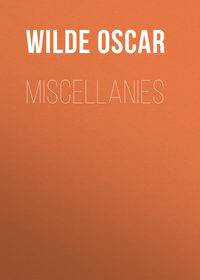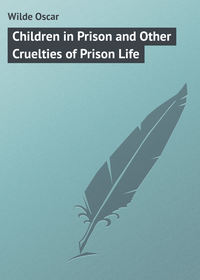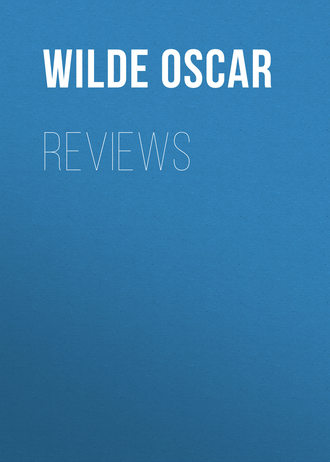 полная версия
полная версияReviews
It is interesting to note that many of the most advanced modern ideas on the subject of the education of women are anticipated by Defoe in his wonderful Essay upon Projects, where he proposes that a college for women should be erected in every county in England, and ten colleges of the kind in London. ‘I have often thought of it, ‘he says,’ as one of the most barbarous customs in the world that we deny the advantages of learning to women. Their youth is spent to teach them to stitch and sew, or make baubles. They are taught to read, indeed, and perhaps to write their names or so, and that is the height of a woman’s education. And I would but ask any who slight the sex for their understanding, “What is a man (a gentleman I mean) good for that is taught no more?” What has the woman done to forfeit the privilege of being taught? Shall we upbraid women with folly when it is only the error of this inhuman custom that hindered them being made wiser?’ Defoe then proceeds to elaborate his scheme for the foundation of women’s colleges, and enters into minute details about the architecture, the general curriculum, and the discipline. His suggestion that the penalty of death should be inflicted on any man who ventured to make a proposal of marriage to any of the girl students during term time possibly suggested the plot of Lord Tennyson’s Princess, so its harshness may be excused, and in all other respects his ideas are admirable. I am glad to see that this curious little volume forms one of the National Library series. In its anticipations of many of our most modern inventions it shows how thoroughly practical all dreamers are.
* * * * *I am sorry to see that Mrs. Fawcett deprecates the engagement of ladies of education as dressmakers and milliners, and speaks of it as being detrimental to those who have fewer educational advantages. I myself would like to see dressmaking regarded not merely as a learned profession, but as a fine art. To construct a costume that will be at once rational and beautiful requires an accurate knowledge of the principles of proportion, a thorough acquaintance with the laws of health, a subtle sense of colour, and a quick appreciation of the proper use of materials, and the proper qualities of pattern and design. The health of a nation depends very largely on its mode of dress; the artistic feeling of a nation should find expression in its costume quite as much as in its architecture; and just as the upholstering tradesman has had to give place to the decorative artist, so the ordinary milliner, with her lack of taste and lack of knowledge, her foolish fashions and her feeble inventions, will have to make way for the scientific and artistic dress designer. Indeed, so far from it being wise to discourage women of education from taking up the profession of dressmakers, it is exactly women of education who are needed, and I am glad to see in the new technical college for women at Bedford, millinery and dressmaking are to be taught as part of the ordinary curriculum. There has also been started in London a Society of Lady Dressmakers for the purpose of teaching educated girls and women, and the Scientific Dress Association is, I hear, doing very good work in the same direction.
* * * * *I have received some very beautiful specimens of Christmas books from Messrs. Griffith and Farran. Treasures of Art and Song, edited by Robert Ellice Mack, is a real édition de luxe of pretty poems and pretty pictures; and Through the Year is a wonderfully artistic calendar.
Messrs. Hildesheimer and Faulkner have also sent me Rhymes and Roses, illustrated by Ernest Wilson and St. Clair Simmons; Cape Town Dicky, a child’s book, with some very lovely pictures by Miss Alice Havers; a wonderful edition of The Deserted Village, illustrated by Mr. Charles Gregory and Mr. Hines; and some really charming Christmas cards, those by Miss Alice Havers, Miss Edwards, and Miss Dealy being especially good.
* * * * *The most perfect and the most poisonous of all modern French poets once remarked that a man can live for three days without bread, but that no one can live for three days without poetry. This, however, can hardly be said to be a popular view, or one that commends itself to that curiously uncommon quality which is called common-sense. I fancy that most people, if they do not actually prefer a salmis to a sonnet, certainly like their culture to repose on a basis of good cookery, and as there is something to be said for this attitude, I am glad to see that several ladies are interesting themselves in cookery classes. Mrs. Marshall’s brilliant lectures are, of course, well known, and besides her there is Madame Lebour-Fawssett, who holds weekly classes in Kensington. Madame Fawssett is the author of an admirable little book, entitled Economical French Cookery for Ladies, and I am glad to hear that her lectures are so successful. I was talking the other day to a lady who works a great deal at the East End of London, and she told me that no small part of the permanent misery of the poor is due to their entire ignorance of the cleanliness and economy necessary for good cooking.
* * * * *The Popular Ballad Concert Society has been reorganised under the name of the Popular Musical Union. Its object will be to train the working classes thoroughly in the enjoyment and performance of music, and to provide the inhabitants of the crowded districts of the East End with concerts and oratorios, to be performed as far as possible by trained members of the working classes; and, though money is urgently required, it is proposed to make the Society to a certain degree self-supporting by giving something in the form of high-class concerts in return for subscriptions and donations. The whole scheme is an excellent one, and I hope that the readers of the Woman’s World will give it their valuable support. Mrs. Ernest Hart is the secretary, and the treasurer is the Rev. S. Barnett.
(1) Etudes et Souvenirs. By Madame Ristori. (Paul Ollendorff.)
(2) The New Purgatory and Other Poems. By Elizabeth Rachel Chapman. (Fisher Unwin.)
(3) Hithersea Mere. By Lady Augusta Noel, Author of Wandering Willie, From Generation to Generation, etc. (Macmillan and Co.)
(4) Margery Merton’s Girlhood. By Alice Corkran. (Blackie and Son.)
(5) Women and Work. By Emily Pfeiffer. (Trübner and Co.)
(6) Treasures of Art and Song. Edited by Robert Ellice Mack. (Griffith and Farren.)
(7) Rhymes and Roses. Illustrated by Ernest Wilson and St. Clair Simons. Cape Town Dicky. Illustrated by Alice Havers. The Deserted Pillage. Illustrated by Charles Gregory and John Hines. (Hildesheimer and Faulkner.)
THE POETS’ CORNER – IV
(Pall Mall Gazette, January 20, 1888.)
A cynical critic once remarked that no great poet is intelligible and no little poet worth understanding, but that otherwise poetry is an admirable thing. This, however, seems to us a somewhat harsh view of the subject. Little poets are an extremely interesting study. The best of them have often some new beauty to show us, and though the worst of them may bore yet they rarely brutalise. Poor Folks’ Lives, for instance, by the Rev. Frederick Langbridge, is a volume that could do no possible harm to any one. These poems display a healthy, rollicking, G. R. Sims tone of feeling, an almost unbounded regard for the converted drunkard, and a strong sympathy with the sufferings of the poor. As for their theology, it is of that honest, downright and popular kind, which in these rationalistic days is probably quite as useful as any other form of theological thought. Here is the opening of a poem called A Street Sermon, which is an interesting example of what muscular Christianity can do in the sphere of verse-making:
What, God fight shy of the city?He’s t’ other side up I guess;If you ever want to find Him,Whitechapel’s the right address.Those who prefer pseudo-poetical prose to really prosaic poetry will wish that Mr. Dalziel had converted most of his Pictures in the Fire into leaders for the Daily Telegraph, as, from the literary point of view, they have all the qualities dear to the Asiatic school. What a splendid leader the young lions of Fleet Street would have made out of The Prestige of England, for instance, a poem suggested by the opening of the Zulu war in 1879.
Now away sail our ships far away o’er the sea,Far away with our gallant and brave;The loud war-cry is sounding like wild revelriè,And our heroes dash on to their grave;For the fierce Zulu tribes have arisen in their might,And in thousands swept down on our few;But these braves only yielded when crushed in the fight,Man to man to their colours were true.The conception of the war-cry sounding ‘like wild revelriè’ is quite in the true Asiatic spirit, and indeed the whole poem is full of the daring English of a special correspondent. Personally, we prefer Mr. Dalziel when he is not quite so military. The Fairies, for instance, is a very pretty poem, and reminds us of some of Dicky Doyle’s charming drawings, and Nat Bentley is a capital ballad in its way. The Irish poems, however, are rather vulgar and should be expunged. The Celtic element in literature is extremely valuable, but there is absolutely no excuse for shrieking ‘Shillelagh!’ and ‘O Gorrah!’
Women must Weep, by Professor Harald Williams, has the most dreadful cover of any book that we have come across for some time past. It is possibly intended to symbolise the sorrow of the world, but it merely suggests the decorative tendencies of an undertaker and is as depressing as it is detestable. However, as the cowl does not make the monk, so the binding, in the case of the Savile Club school, does not make the poet, and we open the volume without prejudice. The first poem that we come to is a vigorous attack on those wicked and misguided people who believe that Beauty is its own reason for existing, and that Art should have no other aim but her own perfection. Here are some of the Professor’s gravest accusations:
Why do they patch, in their fatal choice,When at secrets such the angels quake,But a play of the Vision and the Voice? —Oh, it’s all for Art’s sake.Why do they gather what should be left,And leave behind what they ought to take,And exult in the basest blank or theft? —Oh, it’s all for Art’s sake.It certainly must be admitted that to ‘patch’ or to ‘exult in the basest blank’ is a form of conduct quite unbefitting an artist, the very obscurity and incomprehensible character of such a crime adding something to its horror. However, while fully recognising the wickedness of ‘patching’ we cannot but think that Professor Harald Williams is happier in his criticism of life than he is in his art criticism. His poem Between the Banks, for instance, has a touch of sincerity and fine feeling that almost atones for its over-emphasis.
Mr. Buchan’s blank verse drama Joseph and His Brethren bears no resemblance to that strange play on the same subject which Mr. Swinburne so much admires. Indeed, it may be said to possess all the fatal originality of inexperience. However, Mr. Buchan does not leave us in any doubt about his particular method of writing. ‘As to the dialogue,’ he says, ‘I have put the language of real life into the mouths of the speakers, except when they may be supposed to be under strong emotion; then their utterances become more rapid – broken – figurative – in short more poetical.’ Well, here is the speech of Potiphar’s wife under strong emotion:
ZULEEKHA (seizing him). Love me! or death!Ha! dost thou think thou wilt not, and yet live?By Isis, no. And thou wilt turn away,Iron, marble mockman! Ah! I hold thy life!Love feeds on death. It swallows up all life,Hugging, or killing. I to woo, and thou —Unhappy me! Oh!The language here is certainly rapid and broken, and the expression ‘marble mockman’ is, we suppose, figurative, but the passage can scarcely be described as poetical, though it fulfils all Mr. Buchan’s conditions. Still, tedious as Zuleekha and Joseph are, the Chorus of Ancients is much worse. These ‘ideal spectators’ seem to spend their lives in uttering those solemn platitudes that with the aged pass for wisdom. The chief offenders are the members of what Mr. Buchan calls ‘The 2nd. – Semi-chorus,’ who have absolutely no hesitation in interrupting the progress of the play with observations of this kind:
2ND. – semi-chorusAh! but favour extreme shown to oneAmong equals who yet stand apart,Awakeneth, say ye, if naturally,The demons – jealousy, envy, hate, —In the breast of those passed by.It is a curious thing that when minor poets write choruses to a play they should always consider it necessary to adopt the style and language of a bad translator. We fear that Mr. Bohn has much to answer for.
God’s Garden is a well-meaning attempt to use Nature for theological and educational purposes. It belongs to that antiquated school of thought that, in spite of the discoveries of modern science, invites the sluggard to look at the ant, and the idle to imitate the bee. It is full of false analogies and dull eighteenth-century didactics. It tells us that the flowering cactus should remind us that a dwarf may possess mental and moral qualities, that the mountain ash should teach us the precious fruits of affliction, and that a fond father should learn from the example of the chestnut that the most beautiful children often turn out badly! We must admit that we have no sympathy with this point of view, and we strongly protest against the idea that
The flaming poppy, with its black core, tellsOf anger’s flushing face, and heart of sin.The worst use that man can make of Nature is to turn her into a mirror for his own vices, nor are Nature’s secrets ever disclosed to those who approach her in this spirit. However, the author of this irritating little volume is not always botanising and moralising in this reckless and improper fashion. He has better moments, and those who sympathise with the Duke of Westminster’s efforts to provide open spaces for the people, will no doubt join in the aspiration —
God bless wise Grosvenors whose hearts incline,Workmen to fête, and grateful souls refine;though they may regret that so noble a sentiment is expressed in so inadequate a form.
It is difficult to understand why Mr. Cyrus Thornton should have called his volume Voices of the Street. However, poets have a perfect right to christen their own children, and if the wine is good no one should quarrel with the bush. Mr. Thornton’s verse is often graceful and melodious, and some of his lines, such as —
And the wise old Roman bondsman saw no terror in the dead —Children when the play was over, going softly home to bed,have a pleasant Tennysonian ring. The Ballad of the Old Year is rather depressing. ‘Bury the Old Year Solemnly’ has been said far too often, and the sentiment is suitable only for Christmas crackers. The best thing in the book is The Poet’s Vision of Death, which is quite above the average.
Mrs. Dobell informs us that she has already published sixteen volumes of poetry and that she intends to publish two more. The volume that now lies before us is entitled In the Watches of the Night, most of the poems that it contains having been composed ‘in the neighbourhood of the sea, between the hours of ten and two o’clock.’ Judging from the following extract we cannot say that we consider this a very favourable time for inspiration, at any rate in the case of Mrs. Dobell:
Were Anthony Trollope and George EliotAlive – which unfortunately they are not —As regards the subject of ‘quack-snubbing,’ you know,To support me I am sure they hadn’t been slow —For they, too, hated the wretched parasiteThat fattens on the freshest, the most brightOf the blossoms springing from the – Public Press! —And that oft are flowers that even our quacks should bless!(1) Poor Folks’ Lives. By the Rev. Frederick Langbridge. (Simpkin, Marshall and Co.)
(2) Pictures in the Fire. By George Dalziel. (Privately Printed.)
(3) Women Must Weep. By Professor F. Harald Williams. (Swan Sonnenschein and Co.)
(4) Joseph and His Brethren: a Trilogy. By Alexander Buchan. (Digby and Long.)
(5) God’s Garden. By Heartsease. (James Nisbet and Co.)
(6) Voices of the Street. By Cyrus Thornton. (Elliot Stock.)
(7) In the Watches of the Night. By Mrs. Horace Dobell. (Remington and Co.)
LITERARY AND OTHER NOTES – IV
(Woman’s World, February 1888.)
Canute The Great, by Michael Field, is in many respects a really remarkable work of art. Its tragic element is to be found in life, not in death; in the hero’s psychological development, not in his moral declension or in any physical calamity; and the author has borrowed from modern science the idea that in the evolutionary struggle for existence the true tragedy may be that of the survivor. Canute, the rough generous Viking, finds himself alienated from his gods, his forefathers, his very dreams. With centuries of Pagan blood in his veins, he sets himself to the task of becoming a great Christian governor and lawgiver to men; and yet he is fully conscious that, while he has abandoned the noble impulses of his race, he still retains that which in his nature is most fierce or fearful. It is not by faith that he reaches the new creed, nor through gentleness that he seeks after the new culture. The beautiful Christian woman whom he has made queen of his life and lands teaches him no mercy, and knows nothing of forgiveness. It is sin and not suffering that purifies him – mere sin itself. ‘Be not afraid,’ he says in the last great scene of the play:
‘Be not afraid;I have learnt this, sin is a mighty bond’Twixt God and man. Love that has ne’er forgivenIs virgin and untender; spousal passionBecomes acquainted with life’s vilest things,Transmutes them, and exalts. Oh, wonderful,This touch of pardon, – all the shame cast out;The heart a-ripple with the gaiety,The leaping consciousness that Heaven knows all,And yet esteems us royal. Think of it —The joy, the hope!’This strange and powerful conception is worked out in a manner as strong as it is subtle; and, indeed, almost every character in the play seems to suggest some new psychological problem. The mere handling of the verse is essentially characteristic of our modern introspective method, as it presents to us, not thought in its perfected form, but the involutions of thought seeking for expression. We seem to witness the very workings of the mind, and to watch the passion struggling for utterance. In plays of this kind (plays that are meant to be read, not to be acted) it must be admitted that we often miss that narrative and descriptive element which in the epic is so great a charm, and, indeed, may be said to be almost essential to the perfect literary presentation of any story. This element the Greek managed to retain by the introduction of chorus and messenger; but we seem to have been unable to invent any substitute for it. That there is here a distinct loss cannot, I think, be denied. There is something harsh, abrupt, and inartistic in such a stage-direction as ‘Canute strangles Edric, flings his body into the stream, and gazes out.’ It strikes no dramatic note, it conveys no picture, it is meagre and inadequate. If acted it might be fine; but as read, it is unimpressive. However, there is no form of art that has not got its limitations, and though it is sad to see the action of a play relegated to a formal footnote, still there is undoubtedly a certain gain in psychological analysis and psychological concentration.
It is a far cry from the Knutlinga Saga to Rossetti’s note-book, but Michael Field passes from one to the other without any loss of power. Indeed, most readers will probably prefer The Cup of Water, which is the second play in this volume, to the earlier historical drama. It is more purely poetical; and if it has less power, it has certainly more beauty. Rossetti conceived the idea of a story in which a young king falls passionately in love with a little peasant girl who gives him a cup of water, and is by her beloved in turn, but being betrothed to a noble lady, he yields her in marriage to his friend, on condition that once a year – on the anniversary of their meeting – she brings him a cup of water. The girl dies in childbirth, leaving a daughter who grows into her mother’s perfect likeness, and comes to meet the king when he is hunting. Just, however, as he is about to take the cup from her hand, a second figure, in her exact likeness, but dressed in peasant’s clothes, steps to her side, looks in the king’s face, and kisses him on the mouth. He falls forward on his horse’s neck, and is lifted up dead. Michael Field has struck out the supernatural element so characteristic of Rossetti’s genius, and in some other respects modified for dramatic purposes material Rossetti left unused. The result is a poem of exquisite and pathetic grace. Cara, the peasant girl, is a creation as delicate as it is delightful, and it deserves to rank beside the Faun of Callirhöe. As for the young king who loses all the happiness of his life through one noble moment of unselfishness, and who recognised as he stands over Cara’s dead body that
women are not chattels,To deal with as one’s generosityMay prompt or straiten,.and that
we must learnTo drink life’s pleasures if we would be pure,
he is one of the most romantic figures in all modern dramatic work. Looked at from a purely technical point of view, Michael Field’s verse is sometimes lacking in music, and has no sustained grandeur of movement; but it is extremely dramatic, and its method is admirably suited to express those swift touches of nature and sudden flashes of thought which are Michael Field’s distinguishing qualities. As for the moral contained in these plays, work that has the rich vitality of life has always something of life’s mystery also; it cannot be narrowed down to a formal creed, nor summed up in a platitude; it has many answers, and more than one secret.
* * * * *Miss Frances Martin’s Life of Elizabeth Gilbert is an extremely interesting book. Elizabeth Gilbert was born at a time when, as her biographer reminds us, kindly and intelligent men and women could gravely implore the Almighty to ‘take away’ a child merely because it was blind; when they could argue that to teach the blind to read, or to attempt to teach them to work, was to fly in the face of Providence; and her whole life was given to the endeavour to overcome this prejudice and superstition; to show that blindness, though a great privation, is not necessarily a disqualification; and that blind men and women can learn, labour, and fulfil all the duties of life. Before her day all that the blind were taught was to commit texts from the Bible to memory. She saw that they could learn handicrafts, and be made industrious and self-supporting. She began with a small cellar in Holborn, at the rent of eighteenpence a week, but before her death she could point to large and well-appointed workshops in almost every city of England where blind men and women are employed, where tools have been invented by or modified for them, and where agencies have been established for the sale of their work. The whole story of her life is full of pathos and of beauty. She was not born blind, but lost her sight through an attack of scarlet fever when she was three years old. For a long time she could not realise her position, and we hear of the little child making earnest appeals to be taken ‘out of the dark room,’ or to have a candle lighted; and once she whispered to her father, ‘If I am a very good little girl, may I see my doll to-morrow?’ However, all memory of vision seems to have faded from her before she left the sick-room, though, taught by those around her, she soon began to take an imaginary interest in colour, and a very real one in form and texture. An old nurse is still alive who remembers making a pink frock for her when she was a child, her delight at its being pink and her pleasure in stroking down the folds; and when in 1835 the young Princess Victoria visited Oxford with her mother, Bessie, as she was always called, came running home, exclaiming, ‘Oh, mamma, I have seen the Duchess of Kent, and she had on a brown silk dress.’ Her youthful admiration of Wordsworth was based chiefly upon his love of flowers, but also on personal knowledge. When she was about ten years old, Wordsworth went to Oxford to receive the honorary degree of D.C.L. from the University. He stayed with Dr. Gilbert, then Principal of Brasenose, and won Bessie’s heart the first day by telling at the dinner table how he had almost leapt off the coach in Bagley Wood to gather the blue veronica. But she had a better reason for remembering that visit. One day she was in the drawing-room alone, and Wordsworth entered. For a moment he stood silent before the blind child, the little sensitive face, with its wondering, inquiring look, turned towards him. Then he gravely said, ‘Madam, I hope I do not disturb you.’ She never forgot that ‘Madam’ – grave, solemn, almost reverential.


